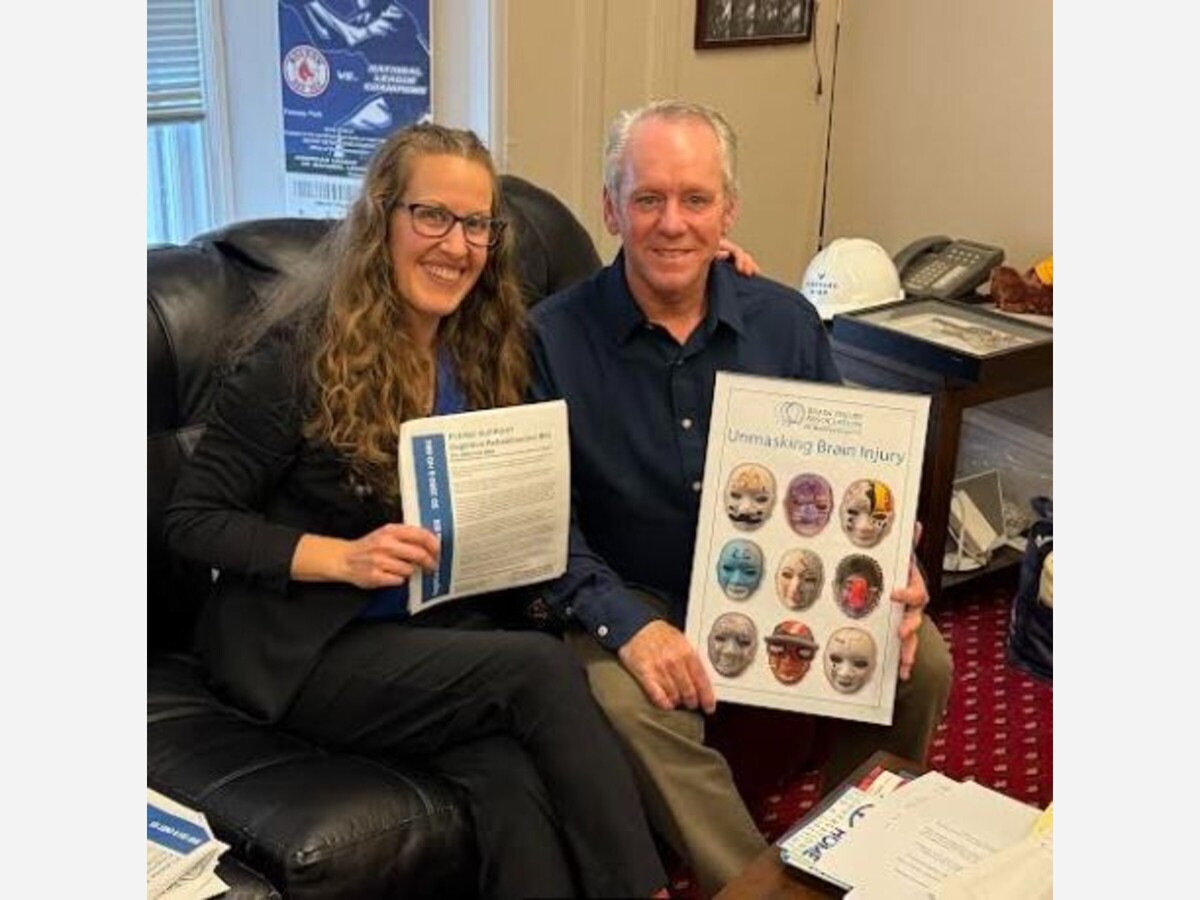Image


Above, Franklin brain-injury advocate Ali Rheaume and State Rep. Jeff Roy confer in the latter's office earlier this month.
On February 4 th , 2025, the Brain Injury Association of Massachusetts (BIA-MA) hosted their annual Brain Injury Annual Advocacy Day at the Massachusetts State House. They were advocating for bills requiring commercial health insurers to cover cognitive rehabilitation services for survivors of traumatic brain injury (TBI), continued funding for the Statewide Head Injury Program, and State Representative Jeffrey N. Roy’s primary seat belt bill.
Rep. Roy attended the Annual Advocacy Day to show his support and addressed a crowd of supporters about HD. 1180, An Act establishing a primary seat belt law. As he noted in his remarks, “Seatbelts offer the best defense from injury or death in car crashes. Seat belts promote safety, save lives, and save money.”
In fact, according to Roy, statistics demonstrate that we could save 45 lives, prevent 500 injuries, and save $525 million over 5 years with a primary seat belt law in effect. According to a recent study in the New England Journal of Medicine, the single greatest opportunity to improve health and reduce premature deaths lies in personal behavior and seat belt use is yet another form of impaired driving that must be addressed. Massachusetts ranks 46th in the nation in seat belt use, lagging the national rate by nearly 10 percent, reinforcing the need for this legislation.
Held at the state house every year, the BIA-MA event provides information on legislative ambitions to constituents, survivors, and elected officials. The push for advocacy does not stop with their policy agenda, as the event is also provides a platform for survivors of traumatic brain injuries to share their personal story on the significant impact of TBI.
During the event, Franklin’s Ali Rheaume, a traumatic brain injury survivor, shared her own experiences, stating, “Brain injuries are ‘invisible", meaning you cannot see what the impact is simply by looking at someone. I may look good, but you have no idea that I actually feel confused, foggy, or even in pain," she said.
“You may get up, get dressed, eat breakfast, drive to work, navigate work all day, and not have to think twice about any of those actions or decisions. For someone who sustained brain injury, every task is a big deal. Choosing your clothes, remembering a schedule, and problem-solving along with sudden issues that arise such as traffic, can all be extremely difficult. It takes cognition, which is affected by brain injury, and that is why we are strongly advocating for new laws, such as Rep Roy’s bill,” Rheaume explained.
The BIA-MA also presented attendees with an “Unmasking Brain Injury” exhibit. This offered compelling visual insight into TBI survivors’ everyday experiences through their artistic works.
Through the speeches of Massachusetts Legislators, BIA-MA, MassAbility, and other survivors, the annual Brain Advocacy Day hopes to ensure stories like Rheaume’s are heard throughout the state.
For more information on the Brain Injury Association of Massachusetts, please visit https://biama.org/.